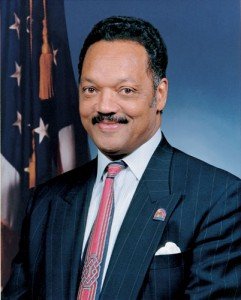The Case for 'DC' Statehood Is Clear
Jesse Jackson | 4/30/2021, 6:50 a.m.
Last week, the House of Representatives passed H.R. 51, a bill that would make Washington, D. C., the 51st state of the union. It would finally end the denial of voting representation to its more than 700,000 residents, the majority of whom are black or brown.
The bill was passed 216-208 with Democrats voting unanimously and Republicans offering not one vote. That led the media to declare the bill dead on arrival in the Senate where it could be passed by a majority but derailed by a filibuster that would require 60 votes. Republicans have announced that they are prepared to filibuster the bill and block the majority from passing it. Once more legislation guaranteeing basic civil rights is threatened by a minority employing the filibuster, the favored instrument used to block civil rights legislation and sustain segregation for decades. Only this time Republicans, once the party of Lincoln, have taken up the mantle of the plantation Democrats of the Old South.
The case for DC statehood is clear. The nation was founded in protest against taxation without representation. DC residents are denied voting representation in the House and Senate. The nation is shamed by military service without representation. DC residents have fought in wars going back to the Revolutionary War and yet have no rep- resentatives to vote in favor or against those wars. America, which claims to lead democracies across the world, denies the foundation of democracy to more than 700,000 citizens in the nation’s capital.
DC is not too small to be a state. It has more citizens than Vermont and Wyoming, and about as many as Alaska.
Those states, of course, are overwhelmingly white. DC would have the largest proportion of African Americans of any state. There are no constitutional obstacles to making DC a state. The Constitution calls for Congress to control the seat of government. The new bill defines the seat of government as including Capitol Hill, the White House, the National Mall and connecting property, drawing the state from the remaining areas.
Historically, voting by DC residents - even for local officials - has been suppressed because of racism. In the 1870s, at the same time the South was beginning to suppress black votes and construct what became the American version of apartheid, Southerners in Congress moved to strip District residents of the vote for fear of blacks. This isn’t disputed. As segregationist Sen. John Tyler Morgan of Alabama explained in 1890, “In the face of this influx of negro population from the surrounding States, [Congress] found it necessary to disenfranchise every man in the District of Columbia ... in order thereby to get rid of this load of negro suffrage that was flooded in upon them. That is the true statement. History cannot be reversed. No man can misunderstand it.”
Republican legislators toss out all sorts of objections to DC statehood - it’s too small, too urban, lacks manu- facturing, doesn’t have a landfill. But their real objection is that it is too black and brown and likely will elect two Democratic senators and a Democratic member to the House. DC residents tend to be more affluent and better educated. You would think that they would be prime targets for Republican appeals. And they would be, except that the res- idents are disproportionately black and brown, and the modern-day Republican Party has made itself into the party of racial division.
The opposition to DC is mirrored in the opposition to statehood for Puerto Rico. Puerto Ricans are U.S. citizens, but, as a territory, have no right to vote. They too pay taxes and serve in the military. Puerto Rico, with 3 million citizens, is even larger than the District. Most Americans support Puerto Rican statehood. But Republicans fear that, since Puerto Ricans are largely people of color, they will tend to elect Democrats. Once more racism stands in the way of democracy.
In 1988, when I ran for president, I called for statehood for the Dis- trict and for Puerto Rico. I also called for the U.S. to end its support for apartheid in South Africa and demand that Nelson Mandela be freed. Since then, Nelson Mandela was freed and became the leader of his country, leading a peaceful transition from apartheid. Historic change is possible. Yet in the U.S., the citizens of the District and of Puerto Rico remain deprived of representation. And the right to vote is once more under siege across the country.
This summer, the Senate will convene a hearing on DC statehood. The White House has strongly issued its support. If Republicans continue to employ the filibuster to block the vote, it is time for Democrats to suspend the fil- ibuster, just as Republicans did to drive confirmation of their Supreme Court nominees to lifetime appointments. The tricks and traps of our segregationist past should no longer stand in the way of simple democracy for the citizens of the District of Columbia.
Follow him on at: Twitter @RevJJackson Share this story online at:
www.StyleMagazine.com





